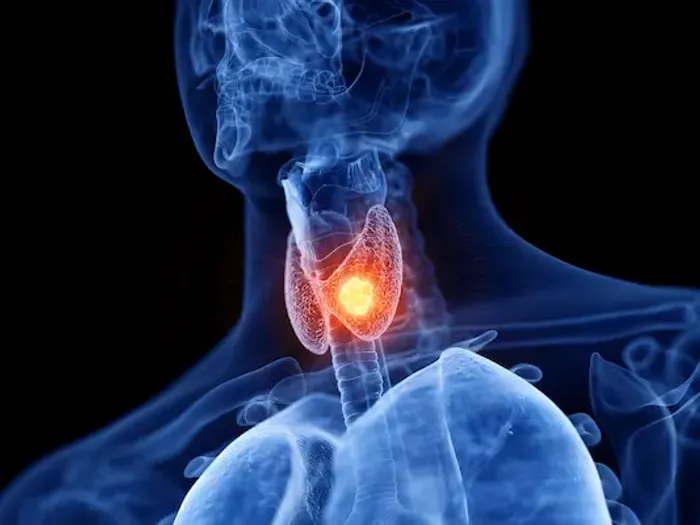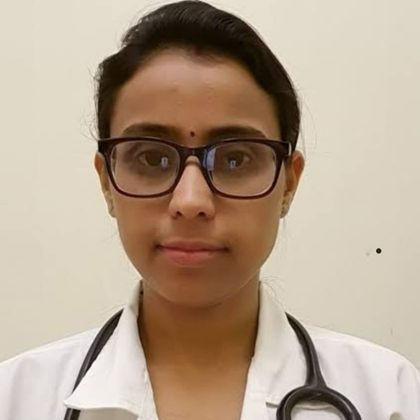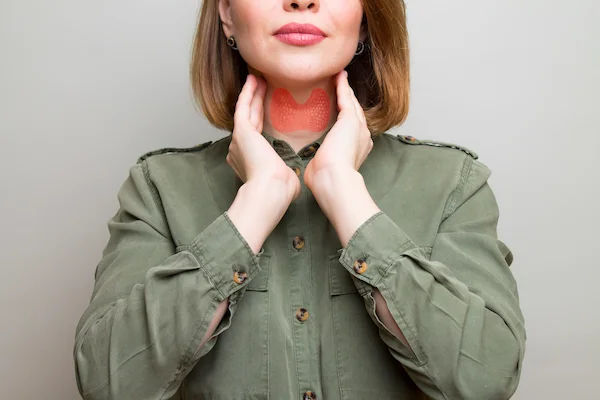What Leads To Signs Of Thyroid Disease Test And Types
Learn about thyroid disease, its signs, key diagnostic tests, and main types. Discover how to interpret results, manage treatment, and prevent common testing errors such as biotin interference. Understand thyroid care for all ages, pregnancy, and beyond.

Written by Dr. Siri Nallapu
Reviewed by Dr. Shaik Abdul Kalam MD (Physician)
Last updated on 13th Jan, 2026

Introduction
Feeling unusually tired, anxious, or struggling with unexplained weight changes? Your thyroid—a small, butterfly-shaped gland in your neck—could be the hidden reason. Thyroid disease is common and often subtle, but the right tests make diagnosis clear and treatment effective. This guide explains what causes thyroid disease, which tests matter most, and how to interpret them. It also covers the main types of thyroid disorders, special considerations in pregnancy, and lifestyle habits that support thyroid health. If symptoms persist beyond two weeks, consult a doctor online with Apollo 24|7 for personalised advice or arrange home collection for tests like TSH, Free T4, and thyroid antibodies.
Why Your Thyroid Matters
Understanding your thyroid’s role helps you make sense of symptoms and test results.
Your thyroid produces two main hormones—thyroxine (T4) and triiodothyronine (T3)—that regulate metabolism,
energy, temperature, and organ function. The pituitary gland releases thyroid-stimulating hormone (TSH) to control
thyroid activity. When hormone levels drop, TSH rises; when they rise, TSH falls.
Low thyroid hormone (hypothyroidism) may cause fatigue, weight gain, dry skin, and low mood, while high hormone
levels (hyperthyroidism) can lead to anxiety, palpitations, tremor, and heat intolerance. Because your heart, brain, and
metabolism all depend on thyroid hormones, even small imbalances can cause significant effects.
Unique insight: Think of TSH as your thermostat and FT4/T3 as your room temperature. A high TSH means your
body is trying to “turn up the heat”—a sign of low thyroid hormone.
Consult a Top Endocrinologist for Personalised Advice
What Leads to Signs of Thyroid Disease?
Recognising the causes helps in early diagnosis and prevention.
Autoimmune Triggers
Hashimoto’s thyroiditis causes the immune system to attack thyroid tissue, leading to underactivity. Graves’ disease, in
contrast, overstimulates the gland, producing excess hormone and sometimes eye problems.
Iodine, Radiation, and Medications
Too little iodine can cause goitre and hypothyroidism, while too much can provoke thyroid dysfunction. Neck radiation
and certain medications such as lithium or amiodarone can also alter thyroid function.
Pregnancy and Postpartum Changes
After childbirth, hormonal shifts can trigger postpartum thyroiditis—first a hyperthyroid phase, then hypothyroidism,
before recovery.
Age, Sex, and Genetics
Women and older adults are more prone to thyroid disease, particularly those with a family history of autoimmune
disorders.
Unique insight: Severe illness can temporarily affect thyroid tests (non-thyroidal illness). Re-test after recovery to avoid
confusion.
Types of Thyroid Disease (Overview)
Knowing the type of thyroid disorder helps you understand symptoms and treatment options.
Hypothyroidism
Usually caused by Hashimoto’s thyroiditis, this leads to underproduction of thyroid hormone. Subclinical
hypothyroidism means TSH is raised but Free T4 is normal—an early stage that may progress.
Hyperthyroidism
Overactivity, often due to Graves’ disease or nodules, increases hormone levels and speeds up metabolism. Subclinical
hyperthyroidism shows low TSH but normal hormones, sometimes needing treatment in older adults.
Thyroiditis
Inflammation of the thyroid, often post-viral or postpartum, can cause temporary overactivity followed by
underactivity.
Structural Conditions
Goitre is an enlarged thyroid, while nodules are lumps within it—most benign. Ultrasound helps determine if biopsy is
needed.
Thyroid Cancer
Usually appears as a painless lump. Most forms are curable with early detection and appropriate treatment.
Unique insight: Subclinical thyroid disease can still impact heart and bone health—don’t dismiss “borderline” results
without context.
Early Signs and Symptoms You Shouldn’t Ignore
Recognising patterns of symptoms helps guide early testing.
Symptoms of Hypothyroidism
Fatigue, dry skin, constipation, cold intolerance, slow heart rate, and mood changes.
Symptoms of Hyperthyroidism
Restlessness, tremor, sweating, heat intolerance, weight loss, diarrhoea, and insomnia.
Red Flags
Seek immediate evaluation for a neck lump, persistent hoarseness, eye bulging, or severe palpitations.
Unique insight: Track your symptoms for two weeks—it helps your clinician interpret subtle lab changes.
When to Get Tested—and What to Ask For
Targeted testing ensures accuracy and avoids unnecessary investigations.
Testing is recommended for persistent symptoms, a family history of thyroid issues, or new neck swelling.
Start with TSH; add Free T4 if TSH is abnormal. For suspected hyperthyroidism, include T3.
When to Add Antibody Tests
- Hashimoto’s: Test TPO and Tg antibodies.
- Graves’ disease: Test TSH receptor antibodies (TRAb/TSI).
- Postpartum: Check TPO antibodies to assess risk.
Other Indications
Test thyroid function for unexplained infertility, irregular heart rhythm, or medication exposures such as amiodarone or lithium.
Unique insight: Recheck borderline TSH after 6–8 weeks, not sooner—your hormone axis adjusts slowly.
Thyroid Tests and What They Mean
Understanding test results helps you make informed decisions with your doctor.
TSH (Thyroid-Stimulating Hormone)
The most sensitive screening test. High TSH means underactive thyroid; low TSH suggests overactivity.
Free T4 and T3
These show active hormone levels. Low FT4 with high TSH confirms hypothyroidism; high FT4/T3 with low TSH
confirms hyperthyroidism.
Thyroid Antibodies
- TPOAb and TgAb: Indicate autoimmune thyroiditis.
- TRAb/TSI: Confirms Graves’ disease and predicts severity.
Specialised Tests
- Thyroglobulin: Used in thyroid cancer follow-up.
- Calcitonin: Screens for rare medullary thyroid cancer.
Unique insight: Always interpret results alongside symptoms—labs are only part of the picture.
Imaging and Biopsy: Beyond Blood Tests
Imaging clarifies the structure and helps detect nodules or cancer.
Ultrasound
Assesses thyroid size, nodules, and suspicious changes.
Radioactive Iodine Uptake (RAIU) Scan
Distinguishes causes of hyperthyroidism and helps plan therapy.
Fine-Needle Aspiration (FNA) Biopsy
Recommended for nodules with concerning ultrasound features.
Unique insight: Many nodules are benign—risk scoring systems help avoid unnecessary biopsies.
How to Prepare for Thyroid Testing (and Avoid Pitfalls)
Proper preparation prevents misleading results.
Stop biotin supplements 48–72 hours before testing—they can distort results.
Delay testing if recovering from severe illness.
Inform your doctor about medications such as lithium, amiodarone, or steroids, as these affect results.
Unique insight: In pregnancy, TSH ranges differ by trimester—use pregnancy-specific targets to avoid overcorrection.
Interpreting Common Lab Patterns (With Examples)
Recognising result patterns simplifies diagnosis.
- High TSH + low FT4: Primary hypothyroidism.
- Low TSH + high FT4/T3: Hyperthyroidism, often Graves’ disease.
- High TSH + normal FT4: Subclinical hypothyroidism—treat if TSH ≥10 or symptomatic.
- Low TSH + normal FT4: Subclinical hyperthyroidism—watch in older adults.
- Low TSH + low FT4: Central hypothyroidism (pituitary origin).
Unique insight: Track results over time; trends matter more than one-off numbers.
Special Populations: Pregnancy, Children, and Older Adults
Management differs across age and life stages.
Pregnancy
Hormone needs increase; regular monitoring every 4 weeks in early pregnancy is key.
Children
Thyroid problems may affect growth or puberty. Early diagnosis prevents long-term effects.
Older Adults
Symptoms may be subtle—start treatment gently to avoid heart complications.
Unique insight: Postpartum thyroiditis often resolves within a year; monitoring prevents overtreatment.
Treatment at a Glance
Effective treatment restores balance and energy.
Hypothyroidism
Levothyroxine replaces missing hormone; monitor TSH 6–8 weeks after dose changes.
Hyperthyroidism
Options include antithyroid drugs, radioactive iodine therapy, or surgery, depending on cause and preference.
Thyroiditis and Nodules
Usually managed with symptom relief or observation unless biopsy shows cancer.
Unique insight: TRAb levels in Graves’ disease help predict relapse after medication treatment.
Lifestyle, Diet, and Prevention
Small daily habits support stable thyroid function.
Use iodised salt, avoid high-dose iodine supplements, and separate thyroid medication from calcium, iron, or soy by at
least 4 hours.
Eat a balanced diet, sleep well, and manage stress to support hormone balance.
Unique insight: Take thyroid medication at the same time each day for steady absorption.
Monitoring and Follow-Up
Regular reviews keep your thyroid in balance.
After any dose adjustment, recheck TSH in 6–8 weeks, then every 6–12 months when stable.
Adjust treatment for weight changes, medication shifts, or new symptoms.
Unique insight: Change only one factor at a time—dose, timing, or brand—to identify what works best.
Myths vs Facts About Thyroid Disease
Separating facts from misconceptions improves care.
- Myth: Normal TSH means no thyroid issue.
- Fact: Pituitary problems can hide thyroid disease—always interpret TSH with FT4.
- Myth: Everyone needs iodine supplements.
- Fact: Excess iodine can trigger thyroid dysfunction.
- Myth: Natural thyroid is always better.
- Fact: Levothyroxine provides stable, predictable hormone replacement.
Unique insight: Start with simple tests; adding unnecessary panels can create confusion.
When to Seek Medical Help
Early action prevents complications.
See a doctor if symptoms persist, you find a neck lump, or experience palpitations or voice changes. If clinic visits are
difficult, book a virtual consultation or home test through Apollo 24|7.
Unique insight: A brief online consultation plus focused testing can solve most thyroid concerns efficiently.
Conclusion
Thyroid disease is common but manageable. Begin with simple tests (TSH and Free T4), add antibody or imaging
studies only when indicated, and avoid pitfalls like biotin interference. Hypothyroidism, hyperthyroidism, and thyroiditis each have effective, well-established treatments. With consistent medication, a balanced diet, and regular follow-up, you can regain energy and stability. For guidance or home testing, consult a doctor online with Apollo 24|7.
Consult a Top Endocrinologist for Personalised Advice
Consult a Top Endocrinologist for Personalised Advice

Dr. Nilotpal Mitra
General Physician/ Internal Medicine Specialist
20 Years • MBBS, PGDGM ( Geriatric Medicine), ACMDC (an Advance course in Diabetes and cardiovascular diseases from PHFI and WHF )
Kolkata
MCR SUPER SPECIALITY POLY CLINIC & PATHOLOGY, Kolkata
Dr Sumanth R
General Physician
2 Years • MBBS
Bengaluru
PRESTIGE SHANTHINIKETAN - SOCIETY CLINIC, Bengaluru

Dr. Anand Ravi
General Physician
2 Years • MBBS
Bengaluru
PRESTIGE SHANTHINIKETAN - SOCIETY CLINIC, Bengaluru

Dr. Sushith C
General Physician
2 Years • MBBS
Bengaluru
PRESTIGE SHANTHINIKETAN - SOCIETY CLINIC, Bengaluru

Dr. Tripti Sharma
Endocrinologist
7 Years • DM Endocrinology MD Medicine
Hyderabad
Apollo Hospitals D R D O kanchanbagh, Hyderabad
(75+ Patients)
Consult a Top Endocrinologist for Personalised Advice

Dr. Nilotpal Mitra
General Physician/ Internal Medicine Specialist
20 Years • MBBS, PGDGM ( Geriatric Medicine), ACMDC (an Advance course in Diabetes and cardiovascular diseases from PHFI and WHF )
Kolkata
MCR SUPER SPECIALITY POLY CLINIC & PATHOLOGY, Kolkata
Dr Sumanth R
General Physician
2 Years • MBBS
Bengaluru
PRESTIGE SHANTHINIKETAN - SOCIETY CLINIC, Bengaluru

Dr. Anand Ravi
General Physician
2 Years • MBBS
Bengaluru
PRESTIGE SHANTHINIKETAN - SOCIETY CLINIC, Bengaluru

Dr. Sushith C
General Physician
2 Years • MBBS
Bengaluru
PRESTIGE SHANTHINIKETAN - SOCIETY CLINIC, Bengaluru

Dr. Tripti Sharma
Endocrinologist
7 Years • DM Endocrinology MD Medicine
Hyderabad
Apollo Hospitals D R D O kanchanbagh, Hyderabad
(75+ Patients)
More articles from Thyroid
Frequently Asked Questions
1. What is the best first test for thyroid disease?
The TSH test is the primary screening tool. Add Free T4 or T3 if symptoms are strong or TSH is abnormal.
2. Can biotin affect thyroid blood tests?
Yes, biotin can distort results. Stop it 48–72 hours before testing.
3. What are the early signs of thyroid problems?
Fatigue, unexplained weight change, temperature intolerance, and mood changes are early warning signs.
4. When do I need an ultrasound or biopsy for a thyroid nodule?
An ultrasound comes first. A biopsy is recommended only if the nodule shows suspicious features.
5. What is subclinical hypothyroidism, and should I treat it?
It’s when TSH is raised, but Free T4 is normal. Treatment depends on TSH level, symptoms, and age—many clinicians treat when TSH ≥10 mIU/L or during pregnancy.

